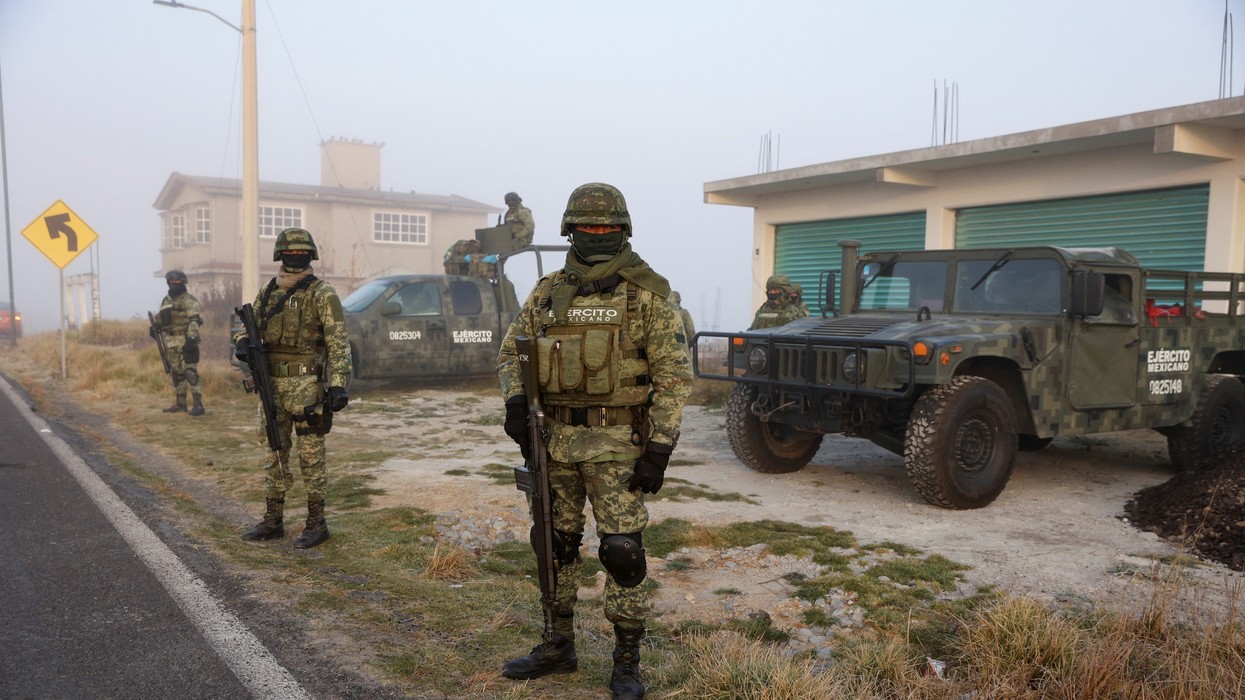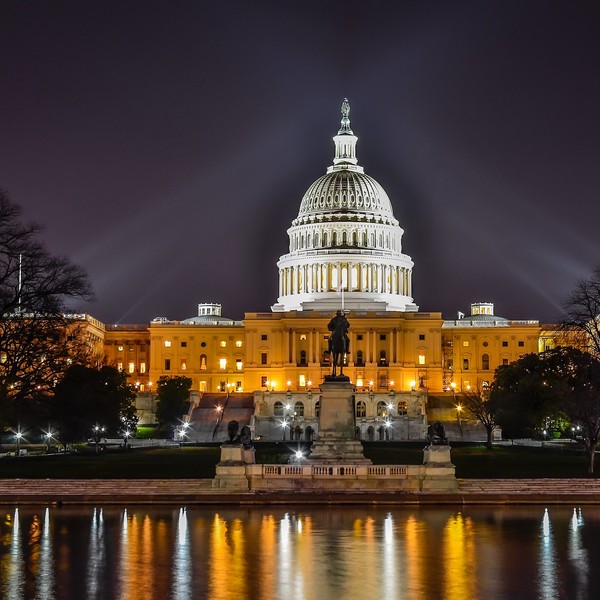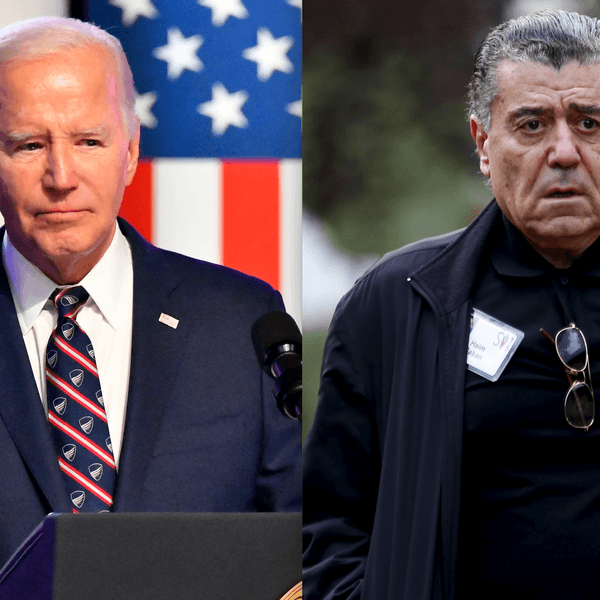The Biden administration opened its second Summit for Democracy this week with a panel featuring India’s Narendra Modi and Israel’s Benjamin Netanyahu. As the leaders of their countries, both have pursued similar forms of exclusionary nationalism.
Indeed, both Modi and Netanyahu were — as they spoke — facing political crises at home in response to their attempts to permanently sideline democratic opposition.
This was a seemingly discordant note with which to begin a democracy conference. Even so, it is very much in keeping with what the Biden administration means when it says that the United States is fighting a global battle for democracy against autocracy. Understanding the counterintuitive meaning of Biden’s slogan is important both to see why this framing is so powerful among American leaders and why it is so dangerous to the health of global democracy.
The administration’s interpretation is best captured in its 2022 National Security Strategy:
The most pressing strategic challenge facing our vision [of a free, open, prosperous, and secure world] is from powers that layer authoritarian governance with a revisionist foreign policy. It is their behavior that poses a challenge to international peace and stability—especially waging or preparing for wars of aggression, actively undermining the democratic political processes of other countries, leveraging technology and supply chains for coercion and repression, and exporting an illiberal model of international order. Many non-democracies join the world’s democracies in forswearing these behaviors. Unfortunately, Russia and the People’s Republic of China (PRC) do not.
The salient division in the world, then, is not between democracies and autocracies but between countries that support the existing international order and the two autocracies — China and Russia — that are seeking to reshape it in illiberal ways.
But this raises some awkward questions:
One: Which side are autocratic U.S. allies on if, like Saudi Arabia and UAE, they wage wars of aggression, undermine the democratic political processes of other countries, and use technology for repression?
Two: Which side are democratic countries on if they support China’s efforts to reshape the international order? This is quite common, because many of the things that China does to “tilt the global playing field to its benefit” are things that poor countries—democratic or not—must do if they are to achieve economic development.
Three: Which side is the U.S. on? Because the U.S. violates the rules-based order and engages in coercion on a regular basis. Leaving aside a long list of examples under earlier presidents and looking only at the Biden administration, the U.S. is currently incapacitating the world trade dispute resolution system; supporting Russia’s argument that it can exempt itself from any economic agreement (in this case, throttling Ukraine’s trade) merely by invoking national security; building a comprehensive blockade on Chinese businesses’ access to certain advanced technologies; seeking to destroy China’s most successful private multinational company, Huawei; and maintaining an extraterritorial sanctions regime that has done terrible damage to Iran’s economy.
So the particular list of allegations against Russia and China, which does not apply equally to both countries, also fails to clearly distinguish the “democracy” team from the “autocracy” team. But the Biden administration has a deeper rationale in mind. As Secretary of State Antony Blinken said, “China is the only country with both the intent to reshape the international order and, increasingly, the economic, diplomatic, military, and technological power to do it.” Ultimately the United States welcomes as client states outright autocracies like Saudi Arabia or Egypt and deteriorating democracies like India, Israel, and Italy in order to turn back the huge threat that administration officials think a powerful China poses to the principle of democracy itself.
What is the nature of that threat? Often the administration accuses China of exporting its authoritarian model in the form of surveillance technology — technology that companies in the U.S. and allied states also sell. Or they highlight China’s campaign to change “democratic norms” at the United Nations. For example, China has sought to elevate collective rights, such as the right to economic development, to the same level as individual rights.
Members of the Biden administration have argued that such a goal would dilute individual rights and empower autocratic states to speak in the name of their people. This perspective, however, is not shared by the overwhelming majority of democratic developing countries. They stand on this issue and many others alongside their authoritarian counterparts, against the opposition of the rich democratic countries. In U.S. political culture, the interests of wealthy countries are often represented as the interests of democratic countries.
Beijing also rejects the “universal values” that the U.S. champions and seeks respect for “the diversity of civilizations,” including those that do not recognize liberal democratic rights and freedoms. The Biden administration has a point here — China does seek to overturn the rhetorical dominance that liberal values have enjoyed in recent decades — but the presence of numerous autocrats and aspiring autocrats in U.S.-led coalitions is eloquent proof that liberal rhetoric does little to restrain authoritarians.
Finally, Biden has made the point that if Chinese authoritarianism is stable and prosperous while U.S. democracy is dysfunctional and stagnant, democracy will lose its appeal around the world. But it is hard to find examples of this happening in practice. China’s recent history of Party-state rule sets it apart from most other countries, making it unpersuasive as a model. And third countries are perfectly capable of valuing partnership with China without losing faith in democracy. In a 2022 survey of African leaders, China was preferred over the United States (46 percent to 9 percent) as a partner on infrastructure development; yet the U.S. was chosen over China (32 percent to 1 percent) when it comes to cooperation around governance and the rule of law.
The idea that a popularity contest between two powerful countries is what determines the choice of political regime in other countries is, in any case, both implausible and insulting.
Why, then, is the idea that China poses a potentially existential threat to democracy so widespread in Washington? Because over the last two decades, the ideological hegemony of neoliberalism (“free markets and free individuals”) — which underwrote the narrow concept of democracy that drove the Third Wave of democratization and supplied the intellectual foundations for the U.S. political elite in recent decades — has disintegrated at home and abroad.
This ideology’s loss of legitimacy is a global phenomenon, but in Washington it was experienced as the outcome of a series of increasingly disastrous setbacks for U.S. economic and military aspirations, starting with the dotcom crash and 9/11, ramifying through the failures of the Free Trade Area of the Americas, the Iraq War, and the Doha Round of WTO negotiations, and culminating in the 2008 global financial crisis and the Great Recession.
The sense of crisis only grew over the following decade as previously marginalized political currents represented by Donald Trump and Bernie Sanders suddenly posed a serious challenge to the political status quo in the United States.
For mainstream American political leaders, the three essential parts of the post-Cold War global system — U.S. military hegemony, free market globalization, and a specifically neoliberal vision of democracy and human rights — were inseparably interwoven. Now referred to in Washington as the “rules-based international order,” a challenge to any part of the package is considered an attack on the whole, and American leaders are particularly sensitive to such challenges given the fragility of the whole system.
Today’s China, though a product of that very system, was also the most prominent country to reject liberal democracy and U.S. hegemony. And in the years since 2008, it has been a step or two ahead of other countries — in some ways constructive and in some horrifying — as every country moves beyond the system. So even though China has been little involved in the specific U.S. failures of the last two decades, it nonetheless stands in as a symbol of all the setbacks that U.S. power and ideology have faced.
Though China’s success within the “rules-based international order” has given it a major stake in sustaining and shoring up significant parts of the system, that success has also made China far more powerful than more antagonistic countries like Russia or North Korea. Because Washington sees China as both hostile and powerful, the image of a menacing China offers a shared focus for U.S. leaders that could overcome the debilitating partisan divisions afflicting the country’s governance — a point that Biden has made many times.
So it’s true that the Biden administration does not see the world as divided between democracies and autocracies. But it does see the world as divided between democracy in the abstract — understood to be the same as U.S. military and economic power and the alliances supporting it — and autocracy in the abstract, represented by the only peer competitor facing the United States, China.
This emerging consensus in Washington is driven by insecurity and defensiveness rather than a serious analysis of the real forces endangering democracy around the world. As such, U.S. leaders have neglected the single most important question: is international conflict and geopolitical bloc formation likely to nourish democracy — or will it strengthen in every country the most threatening authoritarian political currents, namely militarism, nationalism, and nativism?















